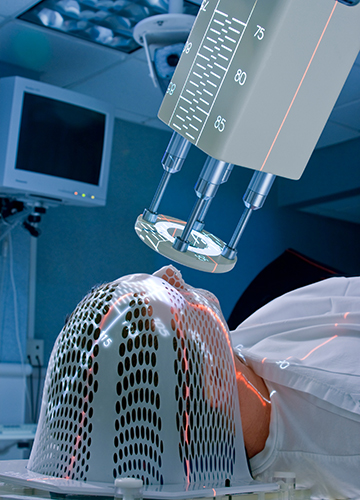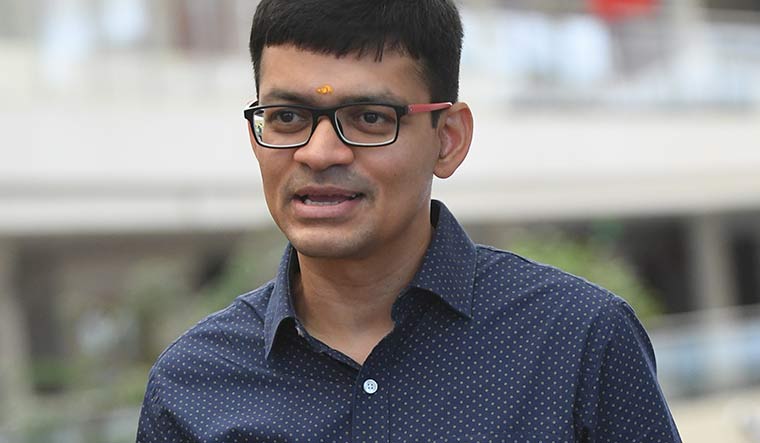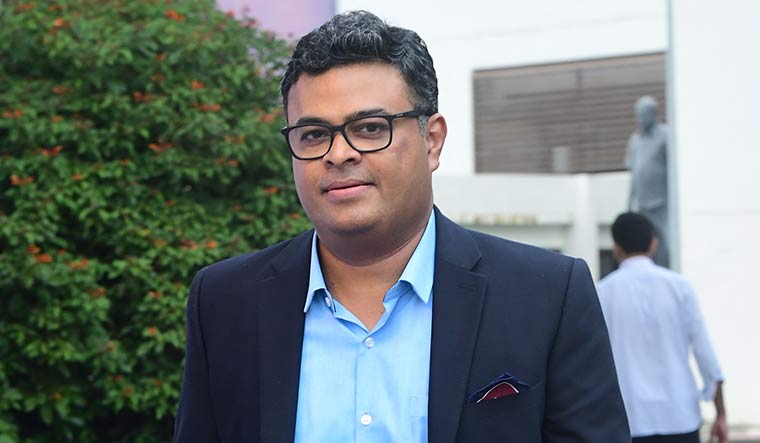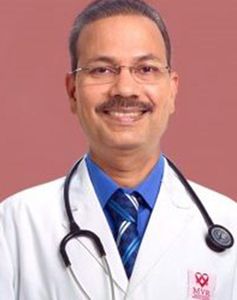Watson for Oncology, IBM’s supercomputer programme that uses artificial intelligence (AI), hasn’t lived up to much of its hype in India.
Watson helps in diagnosis and treatment of cancer. Having ingested around 200 medical textbooks, 300 journals and thousands of research papers, it can select the most effective treatment option for a patient in 60 seconds. Despite the promise it holds, most hospitals in India prefer men over machines.
Dr Roy Vergis, however, is hopeful that AI will increasingly be used in health care in future. An honorary consultant clinical oncologist at Mount Vernon Cancer Centre in north London, Vergis says AI has a crucial role to play in cancer care. “Oncology is a very emotional and challenging speciality. It is very complex as well,” he says. “There is going to be more and more data coming out in cancer care. You have a lot of evidence and new trials. It is very difficult for oncologists to keep up in such a scenario. Something like AI will support the oncologists in their practice, help them take better decisions and provide personalised care as well.”
Technology facilitates improved diagnosis. Leukaemic cells can be easily detected with AI, says Dr Narayanankutty Warrier, medical director, MVR Cancer Centre and Research Institute, Kozhikode. “It makes the pathologist’s job much easier. AI can be used to distinguish between benign and malignant tumours as well,’’ he says.
Oncology is in for exciting times. Advances in technology have changed cancer care in unfathomable ways. Be it an image-based technology to detect lung cancer, chest X-rays, CT scans or MRIs, or machines used to support precision support system, patients derive tremendous benefits from technology.
Technology has also made cancer treatment more precise and less toxic, says Dr Prasad Narayanan, senior consultant, medical oncology, Cytecare Cancer Hospitals, Bengaluru. “Early diagnosis is the key for cure. Tumour cell detection in blood or saliva or breath are potential areas in this regard,” he says. “Robotic surgeries, nanotechnology in chemotherapy drug delivery and radiotagging of isotopes for diagnostic and therapeutic effect have also made giant leaps in cancer treatment.’’
Dr K.V. Sajeevan, consultant medical oncologist at MVRCCRI, feels blessed to be living in such exciting times. “Earlier, we would depend on basic pathology or baseline investigations like CT scans for cancer diagnosis,” he says. “Now, besides the conventional biopsy, a lot of immunohistochemical markers are being used for diagnosis. It means the proteins that are expressed in some types of cancers can be detected in a better way.”
Gene therapy and immunotherapy are gaining momentum in cancer treatment, too. “In immunotherapy, the body’s natural defence cells are being utilised to fight cancer. It has made its impact in lung cancer, stomach cancer and breast cancer,’’ says Sajeevan.
There are pathbreaking advancements in radiotherapy as well. Precision radiotherapy, where the tumour cells are targeted with image-guided radiotherapy, is increasingly being used. Proton therapy has been a real game changer. It targets the affected cells, minimising damage to surrounding tissues. Each person’s cancer cells are unique, says Sajeevan. Precision medicine offers customised treatment, taking into account the unique defects in one’s cancer cells.
Dr Dinesh Makuny, radiation oncologist at MVRCCRI, suggests AI be used for analysing data and improving treatment outcomes. “For instance, when you give radiation to a patient with cancer on the left breast, a lot of radiation goes through the heart,” he says. “AI should be used to analyse the effect of the radiation on the heart and how it is affecting the mortality of the patient in terms of cardiac diseases later.’’ This involves collecting data on mortality rates of patients with left-sided breast cancer and documenting how many of these were cardiac deaths. “With the help of AI, we can find out the optimal dose,” adds Makuny. “We give a lot of expensive drugs to cancer patients. We should have data on their outcome and the amount of survival benefit the patients are getting.”
Makuny defines data as intelligence. “What we lack in oncology is data,” he says. “We should have a data of the cancer problem, the kind of population that is getting affected, the common types of cancer, the kind of treatments being given and the outcomes.” With none of it available, we are only aggregating from the western data, says Makuny.
AI can also give inputs on managing and treating certain cancers. “For instance, you want to study a rare tumour. AI will tell you whether a particular stream of treatment would be effective for the tumour,” says Makuny. “AI can also look into patterns of tumour regression and guide doctors. They can intelligently analyse and tell whether a patient is going into a treatment response mode.’’ According to Dr Kumara Swamy, senior consultant and head, radiation oncology, Aster CMI Hospital, Bengaluru, AI can more aptly be called augmented intelligence, rather than artificial intelligence.
Do doctors fear that machines will make them redundant? “I suspect they do. There is a natural scepticism,” says Vergis. “When AI was being introduced, my wife who is a doctor as well, used to worry that AI would take away all our jobs. Now that I have been involved in AI for more than a year and a half, I can see that it will only help.” That said, he quickly adds that it is good to have some amount of scepticism. “We have to be careful that AI is introduced in a safe and effective manner,” he says.
The fact is that technology is here and a lot of exciting work is happening, says Vergis, but it is difficult to say how it is going to develop and how it is going to improve. “It is rapidly evolving. Some really amazing work has happened in proper deep learning,” he says. “This is where machines will learn from what they have already experienced. That will translate into better outcomes, better decision making, better support systems.”
It takes a multidisciplinary effort involving researchers, entrepreneurs, clinicians and technical brains to translate technology into meaningful patient outcomes, observes Narayanan. Advancements in technology are largely inaccessible to the masses in India. The costs could go down when the devices and machines become more adaptable and the volumes increase. Experts hope technology will help save resources and bring down the cost of cancer care in the long run.
Is AI smarter than human beings? “It is, in some aspects,” says Vergis. “However, humans are necessary and important because we have empathy and compassion, unlike machines. But AI serves a purpose as well. So, it is more of a synergy rather than replacing [humans with AI].’’






